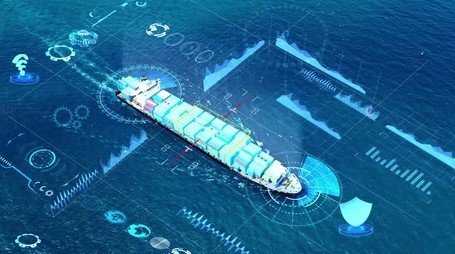Wellington-based startup Starboard Maritime Intelligence has raised $23 million in fresh funding to grow its AI-driven ocean security technology worldwide. Announced on September 8, 2025, this Series A round aims to tackle rising threats like illegal fishing and subsea infrastructure risks, with investors betting big on the company’s innovative tools.
This funding comes at a key time as global concerns over maritime security heat up. Governments and businesses face growing challenges from dark vessels that evade detection, smuggling operations, and potential sabotage to critical underwater cables. Starboard’s platform uses advanced AI to monitor vast ocean areas, providing real-time insights that help protect trade routes and marine environments.
Funding Details and Key Investors
The $23 million raise was led by Altered Capital, OIF Ventures, and King River Capital. Other backers include Co:Act Capital, Icehouse Ventures, and Whakatupu Aotearoa Foundation. This marks a significant jump from the company’s earlier $5 million seed round in 2024, which focused on building core AI capabilities.

Starboard plans to use the money to expand its team, enhance its technology, and enter new markets. The funding reflects strong investor confidence in AI solutions for maritime challenges. For instance, the platform already supports analysts in the Pacific region and beyond, detecting vessels that turn off tracking signals to hide illegal activities.
Company leaders say this capital will speed up global rollout. They aim to partner with more governments and defense agencies, building on early successes like their work with the Australian Fisheries Management Authority.
How Starboard’s AI Technology Works
Starboard combines satellite data, AIS tracking, and AI algorithms to spot suspicious activities at sea. This helps authorities track illegal fishing, which costs the global economy up to $50 billion each year, according to recent estimates from international fisheries reports.
The technology also protects critical infrastructure. For example, it monitors subsea cables that carry over 95 percent of international data traffic. Recent events, such as cable cuts in the Baltic Sea in 2024, highlight the need for better safeguards against accidental damage or deliberate attacks.
Users get comprehensive maritime domain awareness through the platform. It analyzes vessel behaviors, detects anomalies, and provides alerts in real time. This has proven vital in preventing biosecurity threats and transnational crimes.
Here are some core features of Starboard’s system:
- Dark vessel detection using satellite imagery and machine learning.
- Real-time threat assessments for fishing zones and trade lanes.
- Integration with fiber-optic sensing for subsea cable protection.
- Custom analytics for government and commercial clients.
Global Expansion Plans and Market Impact
With this funding, Starboard eyes growth in Europe, Asia, and North America. The company already operates in 30 countries and safeguards over 840,000 kilometers of subsea cable infrastructure. Leaders plan to hire more experts in AI and maritime analysis to support this push.
This move aligns with broader trends in ocean security. In 2025, nations have ramped up efforts against illegal activities, driven by events like increased smuggling in the South China Sea. Starboard’s tools could play a role in international initiatives, such as those by the United Nations to combat overfishing.
The startup’s growth also boosts New Zealand’s tech scene. Based in Wellington, it contributes to the country’s reputation as a hub for innovative startups. Economic experts predict this sector could add millions to the local economy through job creation and exports.
Challenges and Future Outlook
Despite the excitement, Starboard faces hurdles like data privacy concerns and competition from other AI firms. Regulators in some regions demand strict controls on surveillance tech to avoid misuse. The company must navigate these while scaling up.
Looking ahead, industry analysts see huge potential. The global maritime security market is projected to reach $30 billion by 2030, fueled by AI advancements. Starboard’s focus on sustainable ocean protection could set it apart.
Recent partnerships, such as with Tampnet for improved subsea safeguards, show the company’s collaborative approach. These ties help integrate AI with existing systems for better results.
To illustrate the funding journey, here’s a quick overview:
| Funding Round | Amount Raised | Year | Key Focus |
|---|---|---|---|
| Seed | $5 million | 2024 | Building AI tools and Pacific support |
| Series A | $23 million | 2025 | Global expansion and tech enhancements |
Why This Matters for Global Security
This funding round underscores the growing role of AI in protecting oceans. As climate change and geopolitical tensions rise, tools like Starboard’s become essential. They not only detect threats but also support conservation efforts, helping preserve marine life for future generations.
Experts point to logical benefits: faster response times reduce economic losses from illegal activities. For example, better monitoring could cut illegal fishing by 20 percent in high-risk areas, based on studies from organizations like the World Wildlife Fund.
In a world where 70 percent of the planet remains unmonitored, Starboard’s tech fills a critical gap. It empowers users to make informed decisions, from policy makers to ship operators.
What do you think about AI’s role in ocean security? Share your thoughts in the comments and spread the word if this story resonates with you.






